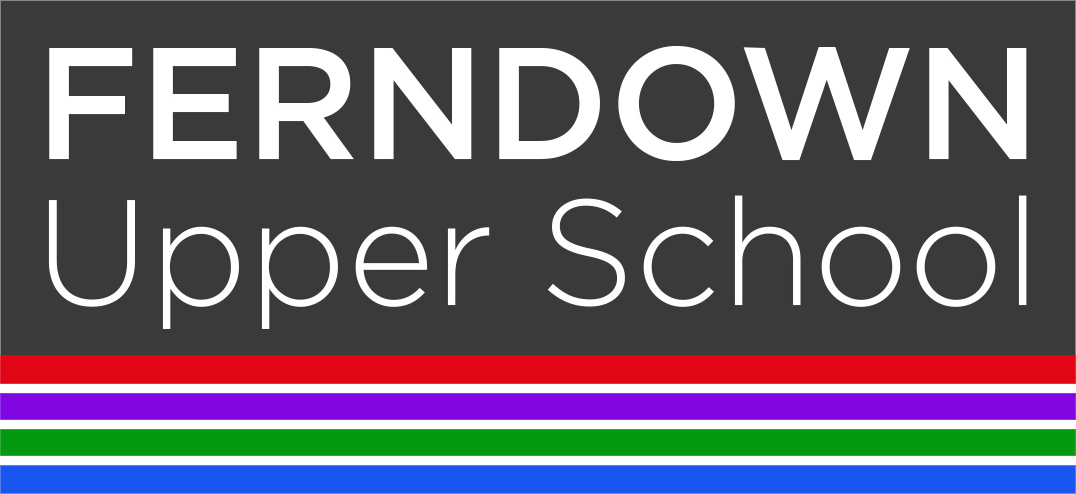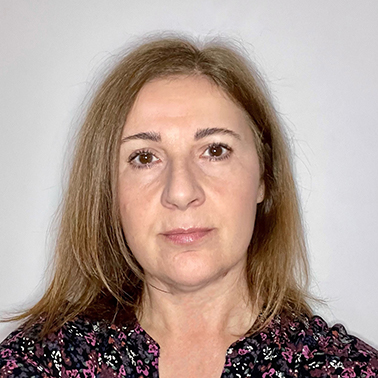Examining Board AQA
Reasons for studying this subject:
Photography will help you to develop your ability to communicate through expressive, experimental and narrative images. It will help you to understand the basic concepts of visual language and enable you to learn a wide range of photographic processes and techniques. It will help you to look at the world around you more critically and encourage you to look at the work of other photographers.
What you will be studying:
You will be given an opportunity to work in a wide range of photographic processes and techniques both in terms of taking your own photographs and the more technical processes of printing them in the dark room. You will be asked to work to a design brief, selecting appropriate subject matter, viewpoints and lighting. You will develop an understanding of the working practices of other photographers through detailed visual and written analysis of their work.
It is important to note that there is a fairly large written element to the course as contextual studies accounts for 25% of the GCSE grade. You will learn how to analyse the work of other photographers critically using specialist photographic terminology, as well as your own work.
How You Will Learn:
When you start the GCSE course in the last term of Year 9, you will undertake practical inductions in both traditional dark room practice and the use of Adobe Photoshop in the photography computer suite as well as studying the history of the camera and photochemistry. After that you will complete two coursework projects in Year 10 and a third in year 11. Each project will introduce you to new photographic processes and techniques, gradually building up your knowledge and understanding of this discipline. You will be expected to research each project by responding to a set brief and selecting appropriate locations and subject matter before taking your own photographs. As part of each project, you will be asked to start by evaluating the work of other photographers from a variety of genres, styles and traditions, before taking your own photographs inspired by their work. You will also learn how to present your work in a neat and professional manner.
How You Will Be Assessed:
- You must submit all three coursework projects for assessment. This will represent 60% of your final mark.
- There is an externally set practical examination project at the end of the course. You will be expected to choose a starting points from a list on the exam paper and complete a project which includes developing your own photographs and evaluating the work of other photographers. You will have approximately 10-11 weeks to produce all your preparatory work, followed by a ten hour practical exam – over two days – to complete your final prints. Your exam project will account for 40% of your final GCSE grade.
*VERY IMPORTANT*
Although you will be given access to dark rooms and a wide range of equipment and materials, and the Photography computer suite, all students taking this course MUST have access to a simple, reasonably priced digital camera (12 mega pixels or higher).
Smart phones with cameras are not suitable as a main digital camera, due to difficulties uploading from a wide range of phones onto the Mac computers and the fact that many phones will now optimise images for Cloud storage, so the full resolution files cannot always be retrieved in lessons. (Also – from a safeguarding point of view, when you connect a smart phone to the Macs, your whole camera roll can be viewed on screen for teachers and other students to see.) Uploading images from digital cameras via their USB leads or SD cards is very easy and quick.
Students will also need access to a traditional 35mm roll film SLR – which could be bought second hand or even borrowed from relatives. (We will provide the film)
Older manual film SLR cameras can now be bought fairly cheaply second hand from eBay, Castle Cameras in Winton, charity shops, Wimborne Market, The Den, or even from older students who have finished their GCSE course and might sell their cameras.
Contact: Miss F. Liddiard – Head of Photography
Curriculum Content of each academic year
Year 9 | |
Year 9 Photography | Content |
KS3 National Curriculum NB there will no longer be formal Year 9 photography lessons from Sept 2021 Photography will be incorporated into Year 9 Art SOWs instead | Year 9 will start their GCSE photography option in May/June and will study the following: 1) Darkroom induction project (photograms, pinhole cameras, first 35mm film and darkroom practice 2) ‘Identity’ Coursework Project (An exploration of concepts of human identity portrayed visually) · Analysis of contextual sources using specialist vocabulary · Practical digital/35mm film responses to contextual sources · Further development of Adobe Photoshop skills in the photography computer suite |
How its assessed: | AQA GCSE assessment criteria Coursework Portfolio (60% of the GCSE grade) |
Year 10 | |
Course/ Exam Board | Content |
AQA GCSE Art & Design (Photography) | 1)Completion of ‘Identity Project’ (if necessary) 2) ‘Spaces’ coursework Project (An exploration of different environments and the way they are viewed/experienced ) *Hidden Spaces * Evidence of Human Presence *Fantasy Landscapes *Leading Lines · Analysis of contextual sources using specialist vocabulary · Practical digital/35mm film responses to contextual sources · Further development of Adobe Photoshop skills in the photography computer suite and extended dark room practice 3) Start of Year 11 Text and Image – Final Coursework Project (An exploration of the conceptual use of text with images – and graphic design) · Inner Voice · Narrative Photography · Music CD packaging design
|
How its assessed: | AQA GCSE assessment criteria Coursework Portfolio (60% of the GCSE grade)
|
Year 11 | |
Course/ Exam Board | Content |
AQA GCSE Art & Design (Photography) | 1) Year 11 Text and Image – Final Coursework Project (An exploration of the conceptual use of text with images – and graphic design) · Inner Voice · Narrative Photography · Music CD packaging design 2) AQA Externally Set Exam Project (From Jan – March in Year 11) 40% GCSE grade |
How its assessed: | Coursework – 60% final GCSE grade Externally Set Exam Project – 40% final GCSE grade |
Year 12 | |
Course/ Exam Board | Content |
AQA GCE A Level Art & Design (Photography) | Autumn Term – Advanced photographic practice 3 modules: (Year 12 coursework 35%) · Rule of thirds vs golden ratio · Depth of field (Darkroom practice) · Unexpected perspectives
Spring Term – Advanced photographic practice Module 4 ‘Identity’ (extended module) (Year 12 coursework 25%)
Spring – summer term (Feb – May) (40% Year 12 grade) Year 12 exam project (A level past paper) – concluding with Year 12 ‘continuation’ practical exam in June. |
How its assessed: | AQA assessment criteria – 60% coursework portfolio, 40% end of Year 12 ’ continuation’ exam |
Year 13 | |
Course/ Exam Board | Content |
AQA GCE A Level Art & Design (Photography) | 1) Personal Investigation Coursework Project – 60% of the A level grade. A self-identified extended coursework project to produce the personal coursework portfolio 2) Externally Set AQA exam project (Feb – May) 40% of the A level grade – culminating in a 15 hour practical exam in May to produce final responses. |
How its assessed: | AQA assessment criteria – 60% coursework portfolio, 40% end of Year 12 ’ continuation’ exam |
Careers In Photography
As a photography student, you will have gained skills highly valued by employers in the art and design careers sectors, such as creativity, a good eye for effective composition, a strong visual awareness and a competent technical knowledge of Adobe Photoshop. Besides professional photography, careers directly linked to photography studies include: graphic design, media/TV/film production, animation, advertising, photojournalism and digital marketing.
Labour Market Information – LMI
It is really useful to look at the labour market when considering a career related to photography. Many sectors related to photography are areas of growth in terms of employment opportunities. For example within the photography, audio visual, film production and graphic design sectors, the workforce is projected to grow by 1.9% over the period to 2027, creating 1900 jobs. In the same period, 58.5% of the workforce is projected to retire, creating 59,800 job openings.
The LMI for All portal provides high quality, reliable LMI information – see link below: https://www.lmiforall.org.uk/
Pathways Example Post 16 Routes – Level 3 A Level / BTEC
- A-Level Photography
- BTEC Foundation Art (Year 14) (Equivalent to 3 A levels)
Pathways Example Post 16 – Apprenticeship Ideas
- Photography Assistant – Photography assistants help photographers plan, set up, and complete photo sessions in their studios or at other worksites. This entry-level role involves helping customers, preparing photos for distribution, configuring and operating photo equipment, and offering creative and technical advice to the photographer.
- Digital Marketing – If you’re interested in social media, product photography, or marketing
- Fashion Studio Assistant
- Apprentice Customer Service, Admin and Marketing Assistant – You might be responsible for answering emails and updating the customer database with any contact that has been made. You may be calling customers and logging all customer related activities in the database. The marketing side of the role involves social media promotions, video editing, photography work, and networking with other businesses.
Pathways Example Post 18 – University degrees
There are lots of varied photography degree courses (Usually BA Hons Batchelor of Arts honours degrees), as well as courses that combine photography with other subjects.
These include: Photography, commercial photography, fashion photography, documentary photography, marine and natural history photography, fashion branding and communication, photography and moving Image, film and visual effects technology (BSc), Specialist Hair and Media Make-up. Animation, Film and Screen Studies and Graphic Design & Photography.
For more information visit the UCAS Undergraduate Search page for courses involving photography – using this link.

